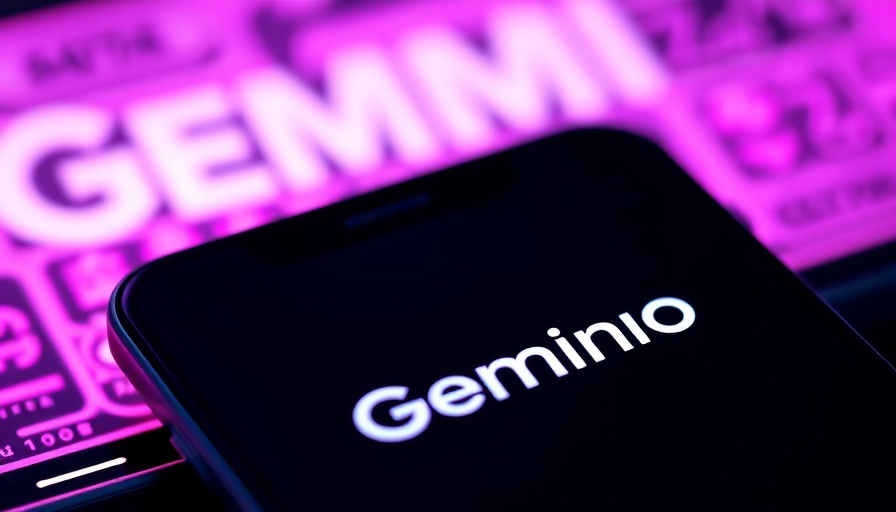
Google’s Transition from Assistant to Gemini: What It Means
Technology is always evolving, and so are the tools we use to interact with it. Google recently announced a major shift in its virtual assistant technology: Google Assistant will be replaced by a new platform called Gemini later this year. This transition marks not just a change in name, but a substantial upgrade in functionalities, reflecting how artificial intelligence continues to reshape our interactions with digital devices.
Why is Google Making the Change?
Launched in February 2024, Gemini was introduced as an improved tool aimed to enhance user experiences on mobile devices. As the tech landscape continues to change, Google is phasing out its classic Assistant feature to streamline operations and foster greater innovation. The advantages of Gemini reportedly include advanced learning capabilities, allowing it to better understand complex requests and user behaviors across various applications.
A Comprehensive Roll-Out Strategy
The transition to Gemini won’t happen overnight. Google plans to roll out upgrades for users in phases, starting with mobile devices and expanding to include tablets, vehicles, and connected home devices. This comprehensive strategy ensures that users have time to adapt to the new system while still enjoying the functionalities of the Assistant until migration is complete.
Key Features of Gemini
Google has highlighted several promising features of Gemini that aim to take user experience to new heights. Among these is the Gemini Live function, which is designed to provide instantaneous assistance based on ongoing interactions. Gemini's Deep Research capability enables users to delve deeper into topics, giving them relevant information in real time.
Heeding User Feedback
Recognizing the importance of user experience, Google has incorporated feedback garnered since Gemini's beta launch. For instance, users can now enjoy features such as music playback, timers, and lock screen actions. Such enhancements address prior complaints where Gemini fell short of providing a seamless experience akin to its predecessor.
The Bigger Picture: Evolution through Generative AI
This change comes at a time when generative AI is rapidly changing how we engage with technology. Google emphasizes that Gemini is tailored to be more personal and intuitive. The company’s focus on understanding users and their environments signifies a broader trend in the tech industry where AI is being embedded deeper into consumer products, shaping user interactions.
What Can Users Expect Going Forward?
Consumers can expect to see more tailored experiences as Gemini embeds itself into everyday interactions with technology. From smart home devices to our phones, the promise is that Gemini will adapt to user preferences, recommending actions and services based on past behavior, thus, creating a more cohesive digital experience.
Conclusion: Preparing for a Future with Gemini
As we transition from Google Assistant to Gemini, staying informed and proactive will ease the transition for users familiar with Assistant's existing functionalities. The upcoming months mark a significant change in how we interact with Google’s ecosystem, and understanding Gemini’s capabilities will helm our expectations. So, buckle up; the future with Gemini looks extremely promising!
 Add Row
Add Row  Add
Add 



Write A Comment